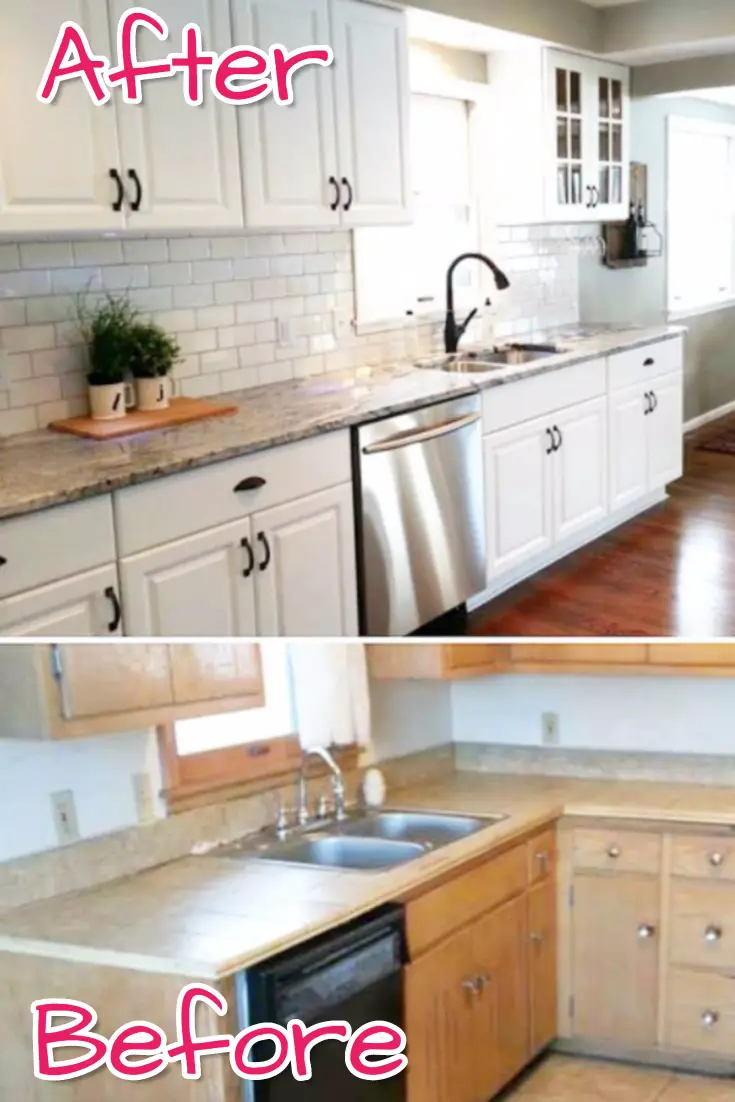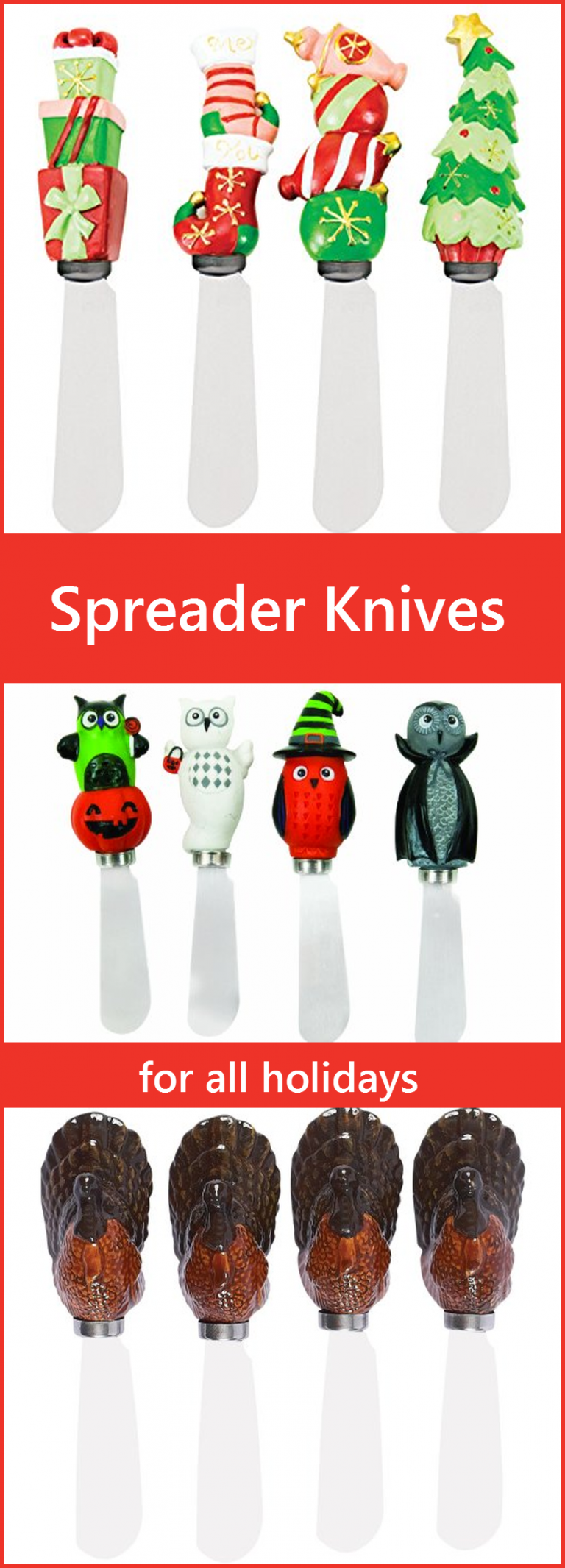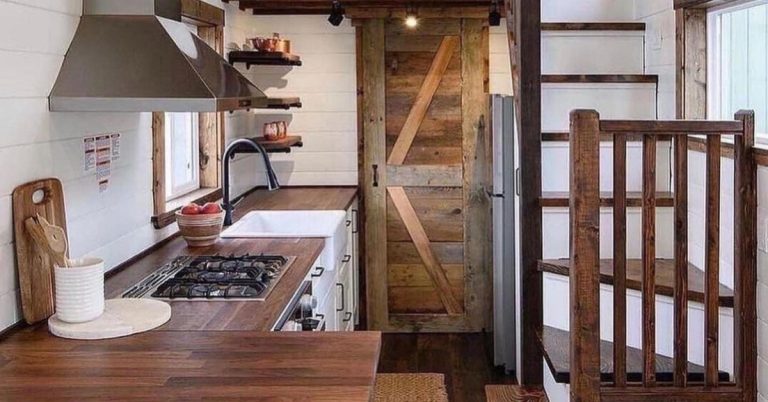Best Home Air Purifiers – Which HEPA Air Purifier Is Best?
Let’s take a look at the BEST home air purifiers on the market this year.
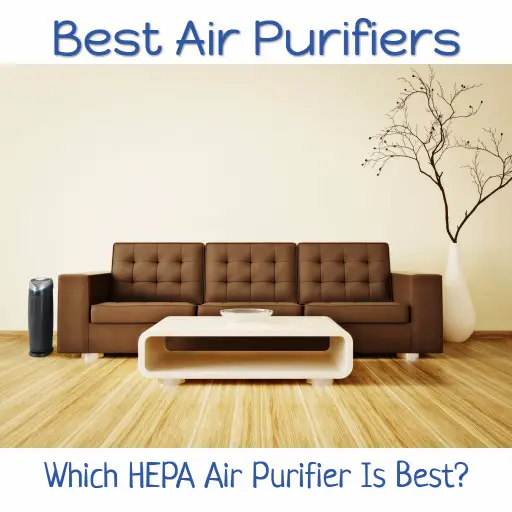
Updated on August 21, 2018
Posts may contain affiliate links and yes, there's ads too (that's how I keep the lights on here). Ads *should* reduce as you scroll down the page - thank you for understanding and for supporting the blogging community - we all work so hard! Enjoy and feel free to share on Pinterest or with your friends!
Whether you have pets or allergies or simply want cleaner air in your house to keep your family healthy, we found the right air purifier for you.
If price is a concern, we also have budget-friendly home air purifier options that are high-quality and worth the money.
✅ See all air purifiers on sale today here
This page has a LOT of information about air purifiers designed to help you find the best air purification systems for you and your home.
Let’s jump in and get started…
- Which HEPA Home Air Purifier Is Best?
- ✅ Best HEPA Air Purifiers for Home
- ✅ Best Air Purifier Consumer Reports WINNER
- Best Affordable Home Air Purifier
- Home Air Purifier FAQ
Which HEPA Home Air Purifier Is Best?
When it comes to the overall best HEPA air purifier for your home, I always recommend this one specific brand of HEPA air purifiers.
Why?
These HEPA purifiers are designed in such a way that they can filter dust particles as small as 0.3 mm diameter.
People who suffer from asthma get affected by even the smallest of dust particles and these air purifiers can be highly beneficial for asthmatic patients.
[yellowbox]✅ Many medical institutions recommend these air purifiers as it purifies air to almost 100 percent – which no other purifier does.[/yellowbox]
Watch this quick video to see exactly how these air purifiers work and WHY they are the best-rated HEPA air purifiers on the market this year:
https://www.youtube.com/watch?v=0U_3eVj5NCY
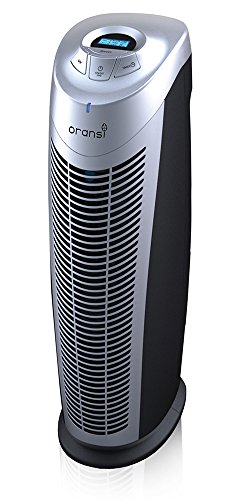


✅ Best HEPA Air Purifiers for Home
These are the Ten Best HEPA air purifiers for your home that we highly recommend:
- GermGuardian AC4825 3-in-1 Air Cleaning System with True HEPA Filter, UV-C Sanitizer, Allergen and Odor Reduction
- GermGuardian AC4100 3-in-1 Air Cleaning System with HEPA Filter, UV-C Sanitizer, Allergen and Odor Reduction
- Honeywell True HEPA Allergen Remover, 465 sq. Ft, HPA300
- GermGuardian AC4900CA 3-in-1 Air Cleaning System with True HEPA Filter, UV-C Sanitizer, Allergen and Odor Reduction
- GermGuardian AC5250PT 3-in-1 Air Cleaning System with Pet Pure True HEPA Filter, UV-C Sanitizer, Allergen and Odor Reduction
- Honeywell 50250-S True HEPA Air Purifier, 390 sq. ft.
- Holmes HEPA Type Desktop Air Purifier, 3 Speeds plus Optional Ionizer, HAP242-NUC
- Hamilton Beach TrueAir Allergen-Reducing Ultra Quiet Air Cleaner Purifier with Permanent HEPA Filter and Specialized Odor Reducing Filter for Pets
- GermGuardian AC5350B Elite 4-in-1 Air Cleaning System with True HEPA Filter, UV-C Sanitizer, Allergen and Odor Reduction
- AeraMax 300 Air Purifier with Large Room Allergy and Asthma 4-Stage Purification
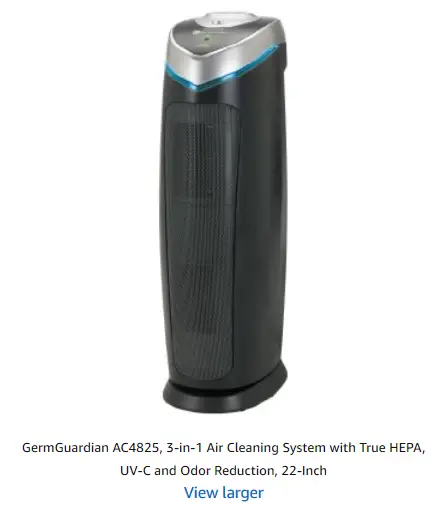
see pictures | check price | read reviews
see pictures | check price | read reviews
see pictures | check price | read reviews
see pictures | check price | read reviews
see pictures | check price | read reviews
see pictures | check price | read reviews
see pictures | check price | read reviews
see pictures | check price | read reviews
see pictures | check price | read reviews
[yellowbox]See pictures, check prices, & read consumer feedback for all of the Top Ten Air Purifiers Here[/yellowbox]
&
✅ Best Air Purifier Consumer Reports WINNER
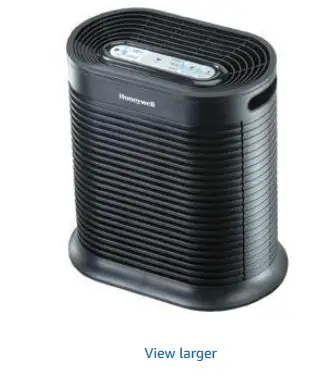
See this Best Air Purifier Here
- #1 Choice of Physicians
- Captures up to 99.97% of Airborne Particles
- Removes dust, pollen, tobacco smoke, cooking smoke, fireplace smoke, pet dander and mold spores from your air
- Easy to use and easy to clean
- Preferred air purifier for patients with breathing disorders
- Certified by the Association of Home Appliance Manufacturers (AHAM) for Clean Air Delivery Rate (CADR) Performance
Get the full details on this HEPA Air Purifier here.
And the Runner Up is…
The next best air purifying system according to Consumer Reports is this specific model from Whirlpool’s air purifiers.
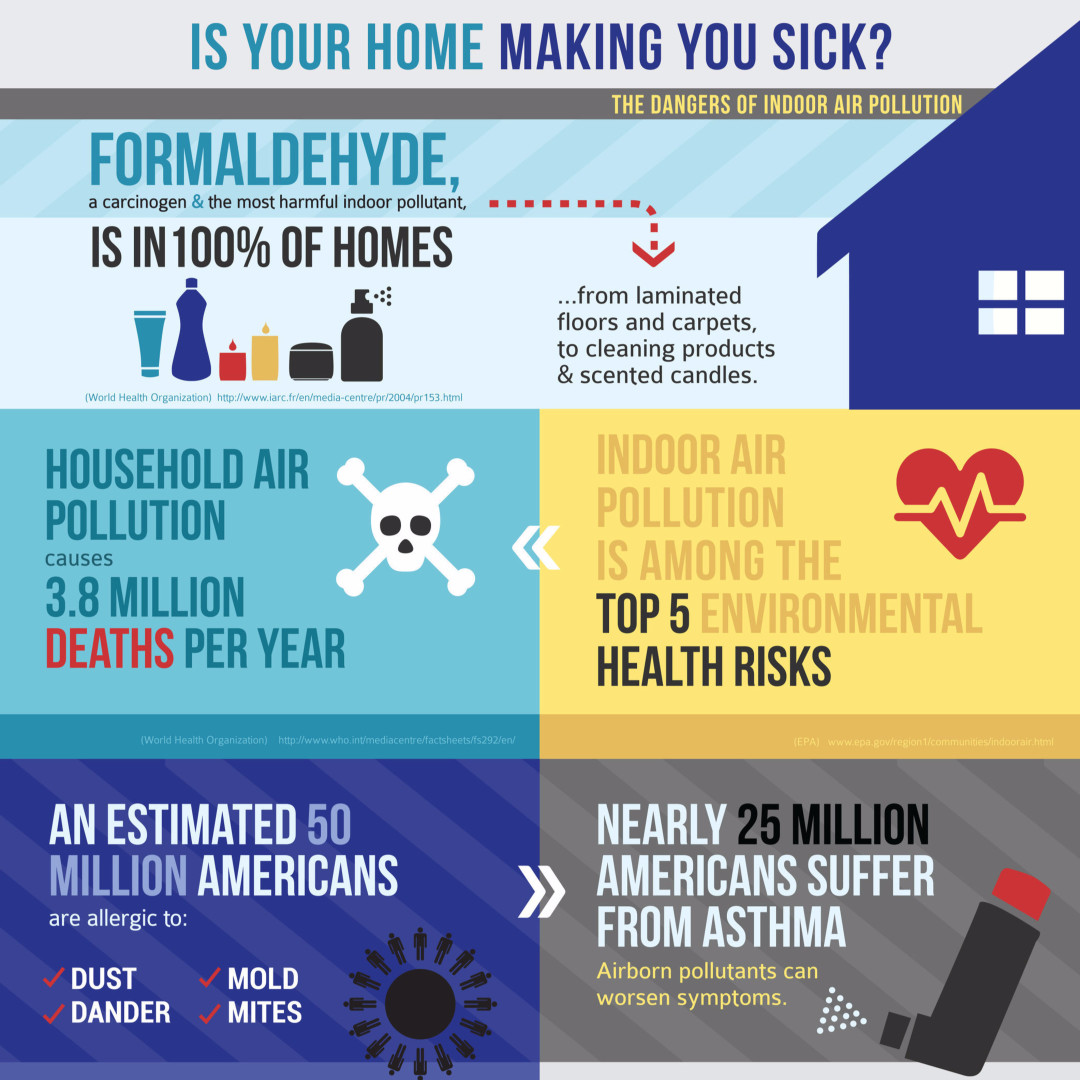
&
Best Affordable Home Air Purifier
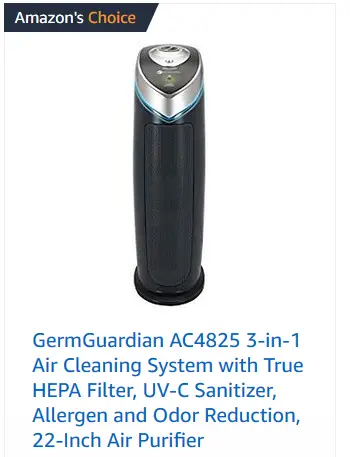
As you can see, Amazon picked this one specific air purifier as their choice for Best HEPA Air Purifier.
After you read ALL the GLOWING reviews of this air purifier, you can easily see that this HEPA purifier is DEFINITELY worth the money and a great value for the money.
And – the price is always GREAT too whenever I check here.
- True HEPA Filtration
- Air Odor Reduction
- Energy Star Qualified
- VERY Quiet When Running
[yellowbox]✅ Also, this HEPA air purifier uses UV-C Light to kill airborne germs (bacteria AND nasty viruses like E. Coli, strep, and rhinovirus). This is a HUGE “plus”![/yellowbox]
Air Purifier FAQ
1. Do I really need an air purifier in my home?
2. Do all air purifiers clean the same kinds of pollutants from the air?
3. How do I know what size air purifier to get for my home?
4. What is Ozone and is it safe for indoors?
5. How often will I need to change or clean the filter in my air purifier?
6. What exactly is a Micron?
7. How much should I pay for an air purifier?
8. Will an air purifier be noisy?
9. What rooms should I put an air purifier in?
10. Where in each room should my air purifier be located?
1. Do I really need an air purifier in my home?
It depends on several factors, including your own comfort level and what the indoor air quality is in your home. There are several factors to take into consideration, however.
First and foremost, many health organizations agree that indoor air quality is often worse than outdoor air quality. In fact, for many people, indoor allergens and irritants such as dust, smoke and pet dander may be two to five times as bad in their homes as outdoors!
There are several indications that you may benefit from an air purifier in your home.
Reasons you might need to get an air purifier include:
- Allergy symptoms such as itchy, watery eyes and runny nose
- Itchy, dry skin or frequent skin rashes
- Asthma or other breathing problems
- Being or living with a smoker
- Owning indoor pets
- Mold or mildew in your home



2. Do all air purifiers clean the same kinds of pollutants from the air?
No. Although all air cleaners clean certain particulates from the air, there are differences in what and how they clean. Some remove dust and particulates such as pet dander and smoke very effectively, while other purifiers eliminate bacteria, viruses and molds and mildew. But very few will do all of these things
3. How do I know what size air purifier to get for my home?
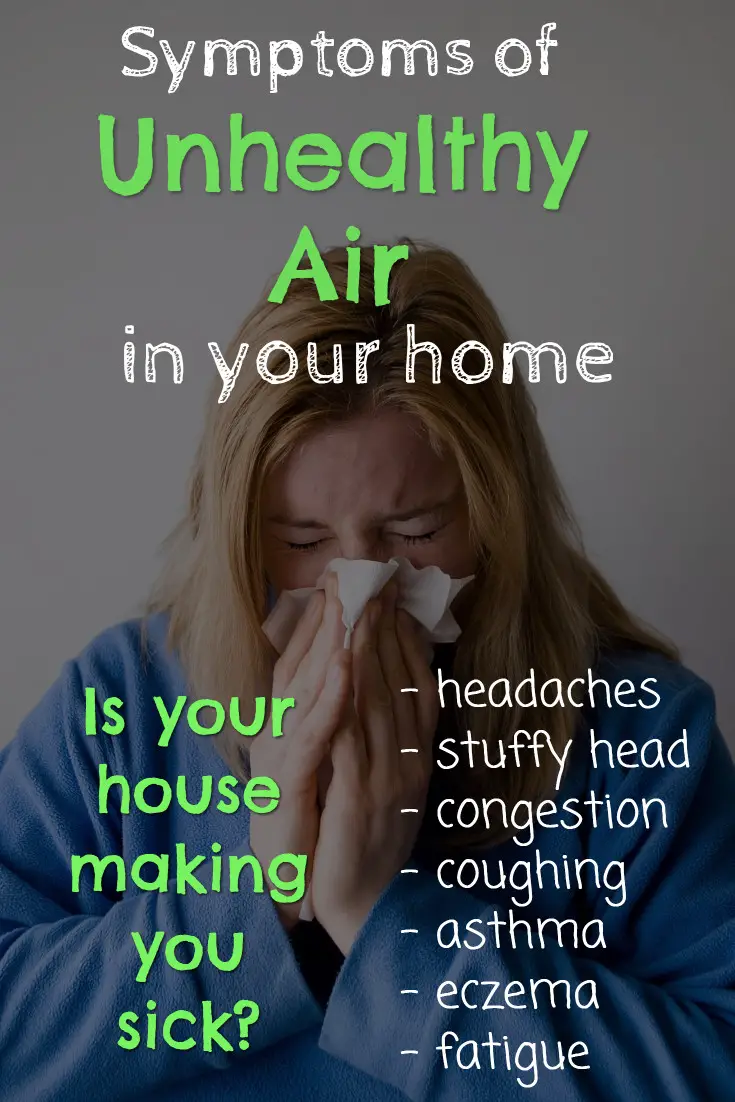 Actually, most air purifiers are designed for individual room use rather than for the whole home.
Actually, most air purifiers are designed for individual room use rather than for the whole home.
Unless you have an air purifier or air filtration system that has been installed on your heating or air conditioning unit, you should get separate units for each room or living space.
The reason you need separate units for each room is because effectiveness is affected by air flow, and walls mean no air circulation. Each room will need its own unit.
To determine what size you need, look for the CADR number. This number indicates the Clean Air Delivery Rate, which should always equal at least 2/3 the total square footage of the room you will be using the air purifier in.
For example, a 10′ X 12′ room has 120′ square feet, and needs a purifier with a CADR number of at least 80.
&
4. What is Ozone and is it safe for indoors?
Ozone is a tasteless, colorless gas made up of three oxygen atoms. It can be found in the upper atmosphere and is naturally produced by thunderstorms during electric discharge.
It is perfectly safe indoors if kept at acceptable levels (between .02 and .05 parts per million), just like many other type of naturally occurring gasses that aren’t harmful to us at certain levels.
Ozone air purifiers have been developed to produce the correct amount of ozone to purify the air without reaching harmful levels.

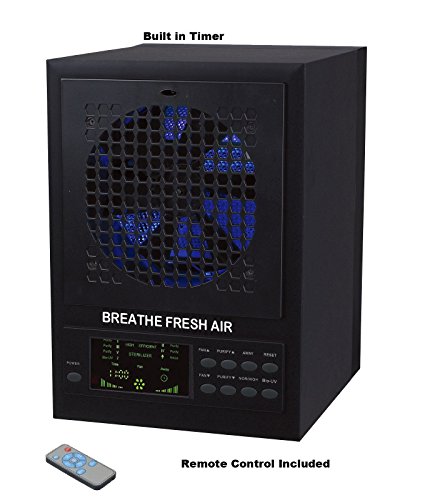

5. How often will I need to change or clean the filter in my air purifier?
It depends on several factors, including how large the room is and what type and size of air purifier you have. Some will need to be changed or cleaned monthly, others more often.
It is very important to check your filter regularly and follow the recommended schedule the manufacturer suggests, since the efficiency of the air purifier relies on proper maintenance.
6. What exactly is a Micron?
A micron is a measurement of the size of a particulate in the air. One micron is 1/25,400 inch (roughly 100 times smaller than a single strand of hair).
Obviously, a micron is far too small to be seen. For the purpose of choosing an air purifier, most types are considered very efficient if they can filter airborne pollutants to .3 microns.
7. How much should I pay for an air purifier?
It’s very hard to determine what you should spend on an air purifier, because price doesn’t always guarantee quality. Doubtless you should be willing to spend enough to get a high-quality product, but protect your investment by making sure your air purifier comes with a warranty.
When buying an air purifier, also take into account the cost of any replacement filters and the electricity to run the unit.
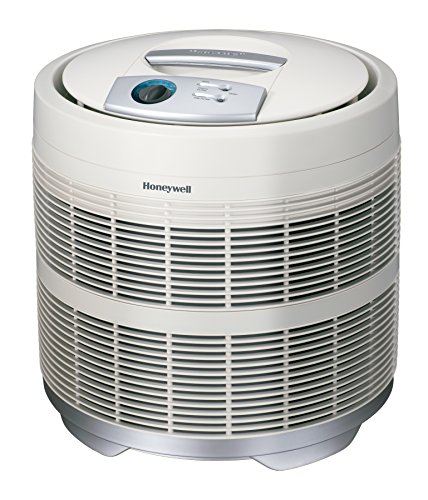
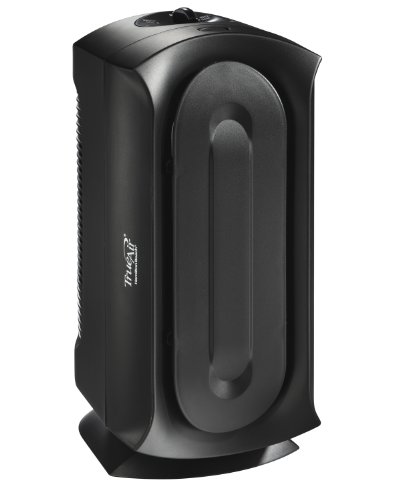

8. Will an air purifier be noisy?
An air purifier with a fan in it will have some noise. HEPA filters, for instance, have fans to pull the air through the filter itself, although improved casings and quieter fans have been developed for noise reduction.
Ionic and ozone units don’t usually have a fan because they use an electrostatic charge or ozone, so they are completely silent. If they combine their technology with a filtration system or a fan to boost air circulation over the plates, their will be some sound, but this will be minimal and these fans may be shut off when you wish.
In general, the noise level of even an air purifier with a fan is low enough that it isn’t intrusive.
9. What rooms should I put an air purifier in?
The rooms you use the most are the most important rooms for air purifier use.
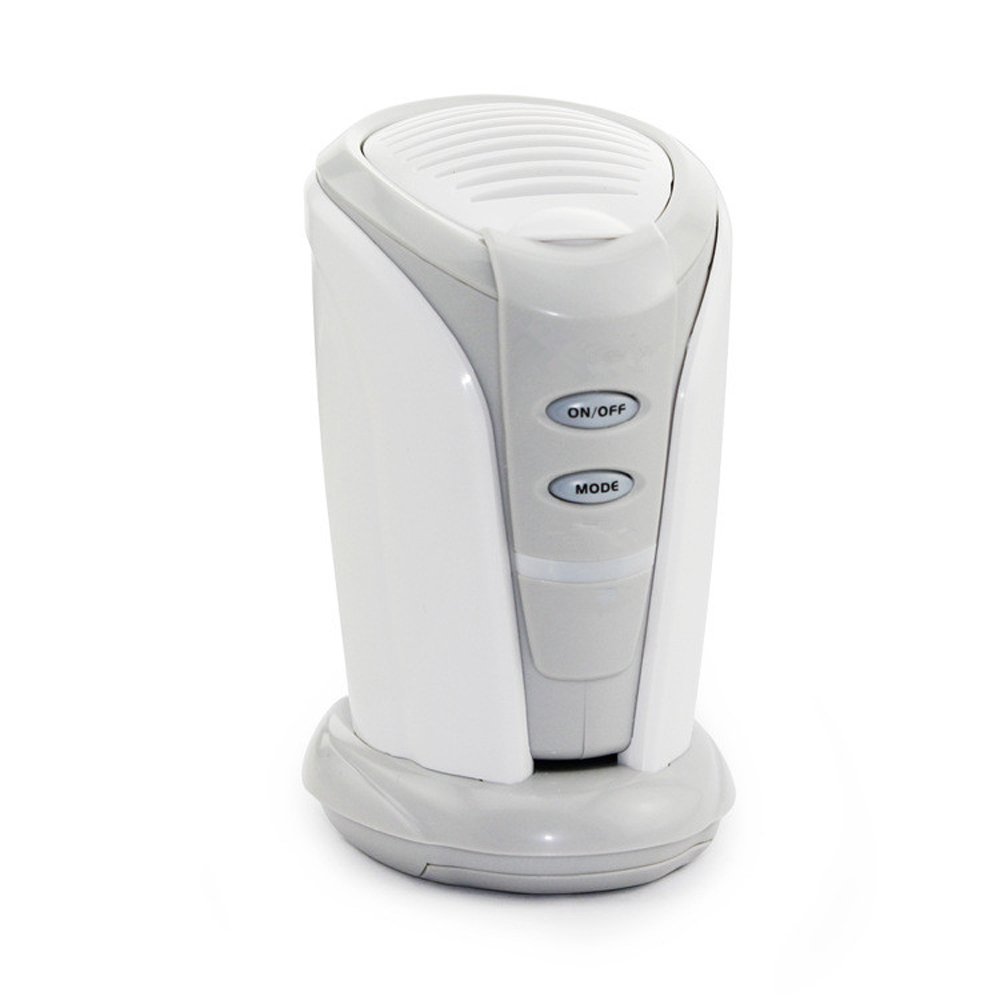
(or any small room)
we found it here
Bedrooms are also a good idea, since allergies and irritants can disturb our sleep.
Clean, fresh air has been proven to produce more restful sleep and reduce night breathing problems while sleeping such as stuffiness, post-nasal drip and night coughing.
Finally, consider getting an air purifier in the bathroom, where odors, mold and mildew are prone to linger. An air cleaner in here can not only make it fresher and more pleasant, but reduce the amount of mold and mildew in the air so that your bathroom will be less of a breeding ground for germs.
10. Where in each room should my air purifier be located?
For any air purifier, it is most important to locate it near the most activity or traffic flow so that there is plenty of air circulation around the air filter. This will increase the air exchange rate and make the air cleaning more efficient.
With a HEPA filter, it is best to locate it near an open area to ensure air movement all around. For an ozone air purifier, you should try to locate unit higher rather than lower, since ozone molecules are heavier than oxygen and will tend to drift downward. The same logic applies to ionic air purifiers, which release charged particles into the air.
If your air purifier unit is relatively portable and you have someone in the room who is a heavy smoker, move the air purifier a bit closer to him or her if this is practical (and if it won’t mortally offend them!).
You may also want, on occasion, to move the air purifier to a specific room when you have a particular
odor to get rid of (you burned dinner, etc.).
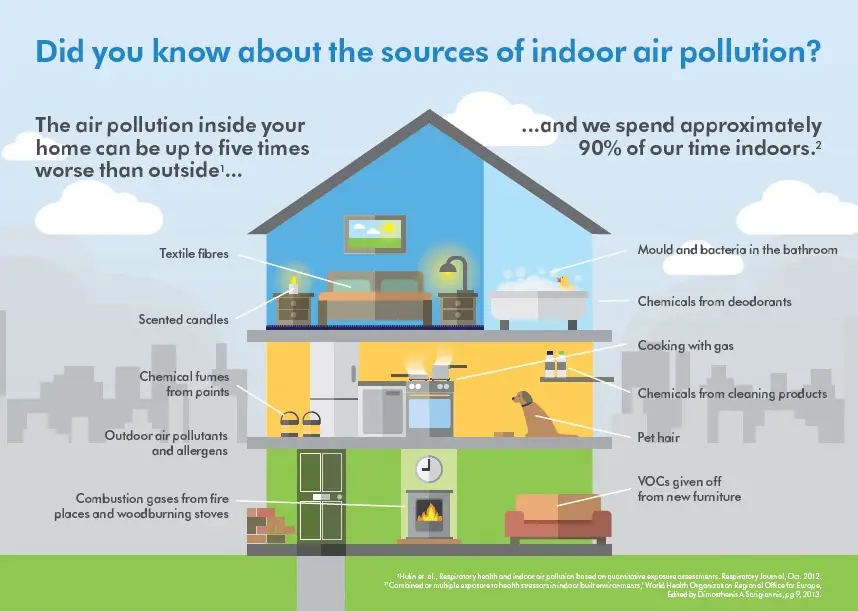
&
&
How HEPA Air Purifiers Work
The HEPA filter used in air cleaners and purifiers are the most reliable on the market. They have been proven to drastically improve the indoor air quality of any space. It is essential to purify the air and ridding your environment of common allergens: such as pollen, mold, dust and dust mites.
A HEPA Air Purifier works as an exchange of air.
Essentially what happens is allergens (particulates) are sucked into the HEPA filter where they get stuck. Then only the clean air is returned into the indoor space. You exchange contaminated air for clean air. This happens numerous times as the air is exchanged, thus resulting in better, cleaner air qualities. The higher the exchange rate, the cleaner the air.
It is important to note that these products work only in the room in which they are operating. It does not exchange air through walls or wide open spaces. It will clean the air in the room in which it is placed. In order to achieve optimum results, the machine should not be placed directly against a wall. You want to increase air circulation. It is also helpful to close the door to the room. This is especially helpful in the bedroom while sleeping.
Another important feature in these products is ultraviolet light systems.
HEPA UV Air Purifier Info
These HEPA UV air purifier systems below remove viruses, bacteria, and mold spores from the air – all of which are incredibly harmful to the human system. So it not only protects us from dust and pollen but also viral contaminants in the air.
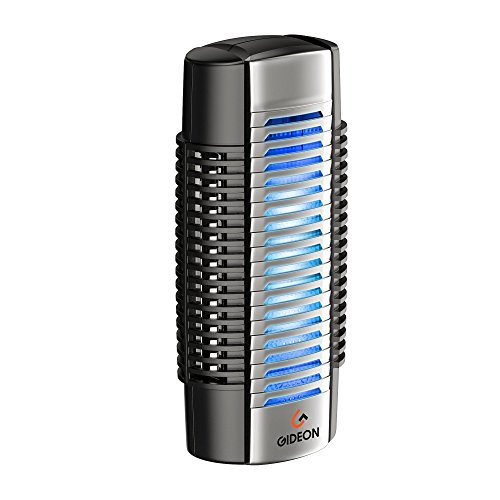
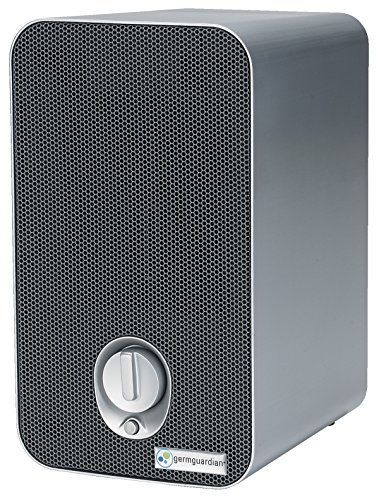
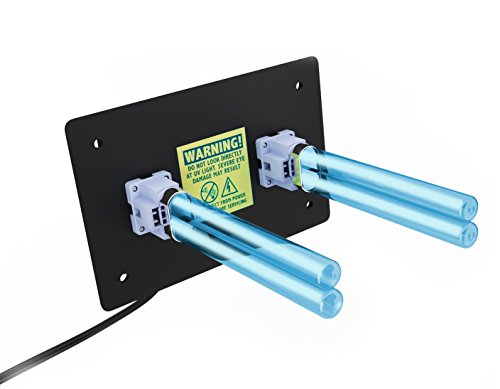
These products are efficient, durable, and well-built. Most machines have at least 3 speed motors, steel construction (prevents annoying rattling machines), and warranties. There are several different models depending on your needs (allergens, asthma, pet dander etc).
They also require minimum maintenance, all you have to do is vacuum the four sides of the outside screen with vacuum brush once a month.
Our health is invaluable.
If you want better sleep and less allergy and asthma symptoms then a quality HEPA air purifier just might be what you need.
It is crucial that we live in environments with clean air and protect ourselves from environmental contaminants and viruses.
HEPA home air purifiers were designed to prevent the spread of airborne radioactive contaminants! So it is pretty safe to say that it will help tremendously in providing an allergen-free environment in your home.
Best Rated HEPA Air Purifiers
Did You Miss Anything?
[toc]




